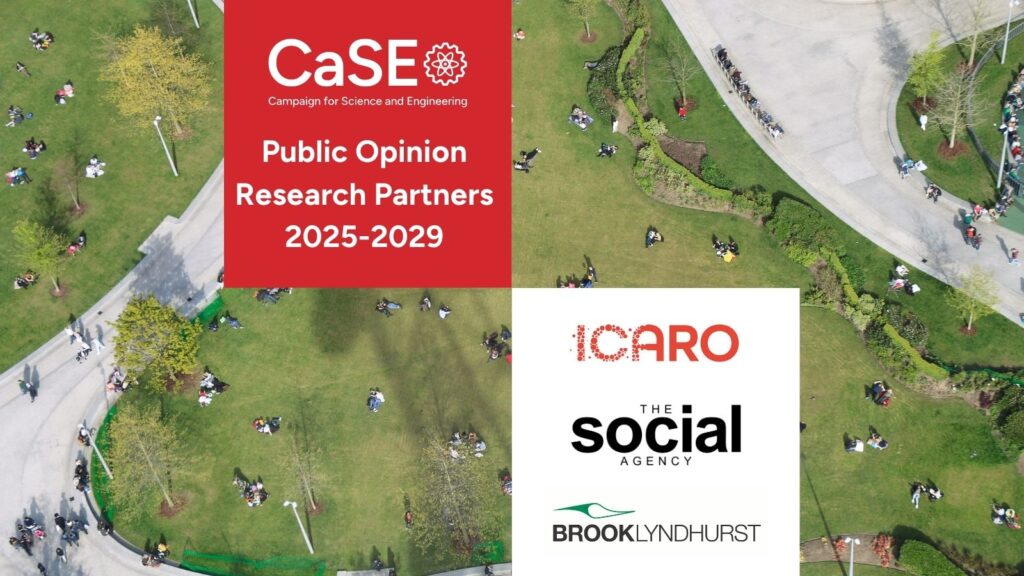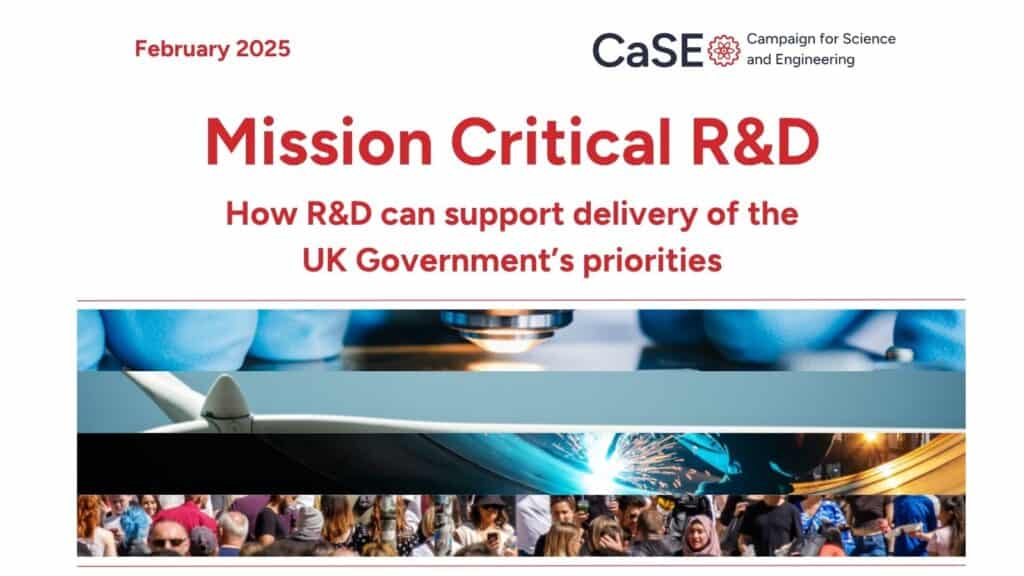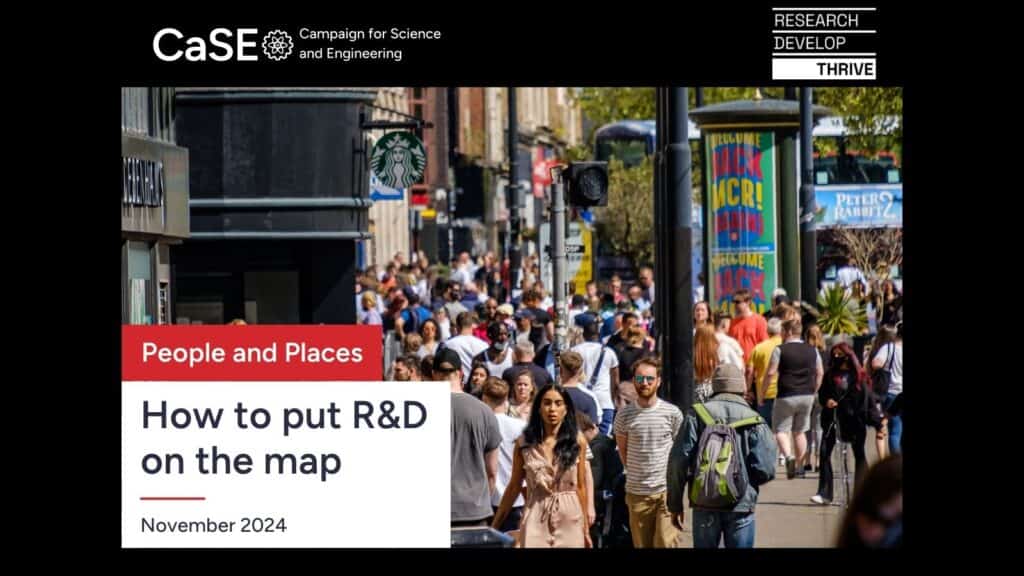“We need R&D to matter to more of the next cohort of MPs, and these local stats can help us grab the attention of Parliamentary Candidates across the country.
“This is our chance to show that R&D is a local issue, as well as a national one, and an issue where voters want to see action from their next MP.“
“CaSE believes strongly in putting science and engineering at the heart of the UK’s future, and this General Election is a pivotal opportunity to do so. Research in the UK requires passionate advocates both in and outside of parliament. I hope that through this campaign of engagement we can build a new cohort of policy makers who recognise the importance and value of R&D.”
Notes to editors
Explore the full results
CaSE Website: https://www.sciencecampaign.org.uk/what-we-do/public-opinion/case-public-opinion-research/case-public-attitudes-to-rd-and-the-general-election-2024/#MRP
Guide to R&D on the Doorstep: https://www.sciencecampaign.org.uk/what-we-do/public-opinion/building-effective-campaigns/case039s-guide-to-rampd-on-the-doorstep/
About CaSE
The Campaign for Science and Engineering (CaSE) is a charity that works to put science and engineering at the heart of the UK’s future. The UK’s leading advocacy group for science and engineering, our membership spans 110 scientific organisations, including businesses, universities, learned societies and charities, as well as individual scientists and engineers. Collectively our members employ over 336,000 people in the UK, and our industry and charity members invest around £32.2bn a year globally in R&D.
We collaborate with our members, partners and the public to lend our clear, expert voice to decisions about science and engineering. We specialise in developing non-partisan, responsive solutions that help research and innovation to thrive in ways that improve people’s lives and livelihoods.
Charity number: 1147492. Company number: 7807252.
Multi-Level Regression with Poststratification methodology
Public First polled a total of 6,111 UK adults. This included 2,011 on March 29th – April 2nd, and 4,100 from June 7th – 9th, 2024. Public First worked with Electoral Calculus to produce a Multi-Level Regression with Poststratification (MRP) analysis of these results, modelling the expected attitudes at a constituency level. Using the demographic information provided by the participants, multi-level regression models are fit to assess the relationship between demographics and views on R&D in 13 questions. This enables us to make predictions as to how individuals who fill specific demographic categories (e.g. male, 18-24, white British…) would respond to each question. These predictions are then “post-stratified” – using known proportions of people in these demographic categories in each Westminster constituency so that we can predict the likely outcome of asking the question in that local area.
This methodology means that hyper-local context or factors cannot be taken into account. For example, a controversy surrounding a specific local candidate for Parliament would not be picked up by this process.
Please note that due to the size of sample in Northern Ireland and the unique political correlates, models do not include projections for these constituencies.
This work was supported by the Wellcome Trust [222853/Z/21/]




